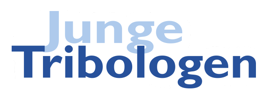Interview with Dr. Matthew Smeeth
What are your hobbies?
I enjoy cycling and even in London it’s a great way of commuting, rain or shine!
Where do you currently work and what’s your role there?
I am the technical manager at PCS Instruments, who manufacture tribology test equipment. My role includes offering tribology support to users of our instruments which I particularly enjoy.
How did you end up in the field of tribology?
After my first degree I was thinking about perhaps studying for a PhD but I was a little unsure about which subject area to concentrate on. I initially considered studies in the chemical engineering field, since the idea of using both engineering and chemistry appealed to me. I then saw an advertisement in a newspaper for a triblogy PhD at Imperial College. It is probably difficult for anyone under 30 to imagine but at that time the internet really was the last place you would actually look for (or find) a job vacancy. To be honest, I hadn’t actually heard of tribology at the time, but I was glad I applied.
I was lucky enough to have both a very enthusiastic academic supervisor (a fairly young Hugh Spikes) and great industrial supervisor (Selda Gunsel from Pennzoil, who went on to be STLE president and is now a VP at Shell).
What tribological topics are you currently working on?
I have recently been working on the development of some standard wear and scuffing tests Also, with the ELGI (European Lubricants and Greases Institute) I have been working on the development of some tests for railway lubricants. One test measures the friction performance of “Top of rail products” which sets a particularly interesting and potentially unique tribology challenge. The products need to provide an intermediate level of friction, ideally giving a friction level between that of a dry rail on the high friction side and a contaminated rail on the low friction side. The bench test we developed very nicely demonstrates the effectiveness of these relatively new products.
Which of these (or other) tribological topics do you think will be most significant for the future?
Electric vehicles and green tribology are of course the very significant topics at the moment. Biotribology is an ever-increasing area of study, since there is a seemingly endless variety of new food products to test (low fat, plant based…). Soft tribology is an extremely useful way of evaluating the sensory performance of different food stuffs and is able to correlate very well with a surprising number of different attributes such as smoothness, chalkiness, creaminess and astringency. These characteristics cannot be measured from the bulk properties of the product alone.
Are there tribological developments e. g. in e-mobility or sustainability that you are already working on?
We are working on some higher speed tribology test rigs, since the speeds involved for e-mobility drive trains are so high. High speed test rigs have their own challenges, since doubling the speed of something more than doubles the engineering effort required!
Do you have a favorite anecdote about the broad scope of the field of tribology?
A long time ago I was on a flight to the USA to attend a conference. Part way through the flight one of our party realised they did not have the necessary visa. The rest of all joked he would probably be sent across the nearest land border to Mexico and would then have to make his own way to the British Embassy to be repatriated. At the airport he very politely spoke to an immigration officer who completed the paperwork of the spot and he bypassed the long queue, then checked in at the hotel and took a relaxing swim in the pool. It took the rest of us about 3 hours to get through immigration!
Do you have advice for the next generation about the importance of tribology?
I think the multi disciplinary approach which tribologists use to solve problems is very important and somewhat unique, try not to get pigeon holed. A saying I particularly like is “when you only have a hammer, every problem seems like a nail”. Fortunately, as tribologists we have a large assortment of tools available, so don’t be afraid to use them and certainly don’t be afraid to ask for help if you don’t think you have the right tool for the job.
